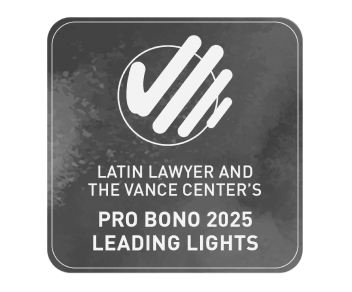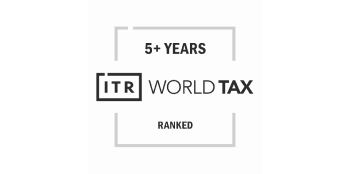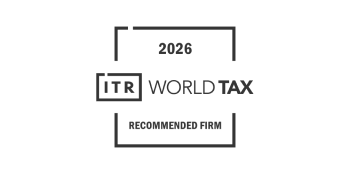


On February 5, 2025, President Claudia Sheinbaum introduced a bill (the "Bill") to the Senate to, among other things, enact the Law of the Hydrocarbons Sector (the “LSH”), the Law of the National Energy Commission (the "Law of the CNE"), and the Law of the State Public Company, Petróleos Mexicanos (the “Law of PEMEX”).
The Bill sets forth the following key points:
A. New Regulator
The Bill provides for the of the National Energy Commission (the "CNE”) as a deconcentrated entity of the Ministry of Energy (the “SENER”) with technical, operational, management, and decision-making independence.
The CNE will be managed by a General Directorate whose head will be appointed by the President and ratified by the Senate (except for the first General Director, who will not require the Senate’s approval).
The CNE will have a Technical Committee to grant permits and issue regulations, composed of the following persons: (i) the head of SENER; (ii) the heads of the Undersecretariat of Electricity and the Undersecretariat of Hydrocarbons of SENER; (iii) the Heads of the Electricity Department and the Hydrocarbons Department of the CNE; and (iv) three technical experts of the energy sector.
B. PEMEX
Petróleos Mexicanos (“PEMEX”) becomes a “State Public Company,” an entity of the Public Administration under SENER.
PEMEX may have affiliated companies, which will have a special remuneration regime. The Law of PEMEX emphasizes flexibility in the creation and operation of affiliated companies and the execution of mixed contracts for exploration and extraction (as explained below).
PEMEX will be subject to a special regime for acquisitions, leases, assets, budget and accounting, debt and sustainability.
C. Assignments and Contracts
SENER may authorize PEMEX to carry out hydrocarbon exploration and extraction activities through assignments. The Bill distinguishes between two types of assignments:
1. Assignment for Self-Development: Pemex alone may carry out the activities harnessing its own capabilities.
2. Assignment for Mixed Development: It allows PEMEX to receive support from third parties. For this purpose, PEMEX may enter into “Mixed Agreements” with private companies.
The Self-Development modality will be preferred in the granting of assignments.
In addition, the SENER may enter into contracts for exploration and extraction of hydrocarbons awarded through competitive bidding processes to PEMEX or private companies. PEMEX and private companies may also participate in consortiums, but not under regulated public-private partnerships.
The granting of assignments will be given priority over contracts for exploration and extraction. PEMEX may request to migrate its assignments to contracts.
D. Permits
The authority to grant hydrocarbon permits, currently belonging to SENER and the Energy Regulatory Commission (the “CRE”), will be distributed as follows:
1. SENER will issue permits for:
a. the treatment, refining, import, export, transportation, storage, and trading of oil; and
b. the import and export of natural gas, petroleum products, and petrochemicals.
2. CNE will issue permits for:
a. the processing, liquefaction, regasification, compression, decompression, transportation, storage, distribution, and trading of natural gas;
b. the formulation, transportation, storage, distribution, trading, and retail of petroleum products;
c. the transportation, storage, and trading of petrochemicals; and
d. the management of transportation and storage integrated systems.
The “formulation” activity, which consists of blending petroleum products with additives and biofuels to obtain products that comply with certain quality standards, will now be regulated and will require a permit issued by CNE upon issuance of the applicable Mexican Official Standards.
Similarly, those engaged (i) in the trading or transportation of petrochemicals by means other than pipeline, must apply for and obtain the corresponding permit within 180 calendar days following the issuance of the regulations governing the permit application, and (ii) in the importation of natural gas, will be required to apply for an import permit with SENER in terms of the regulation issued by the SENER and the Ministry of Economy.
E. Existing Regulations, Contracts, and Permits
The regulations issued by CRE and the National Hydrocarbons Commission (the “CNH”) will remain in effect to the extent not opposed to the Law of the CNE. Similarly, the permits issued by the CRE and the CNH will remain valid and governed by the regulations in effect at the time of issuance.
Existing exploration and production contracts will not be modified. However, the parties may request SENER to migrate to an exploration and extraction contract governed by the LSH without undergoing a bidding process.
The statutory terms for any proceedings pending before CRE or CNH will be suspended for a period of 90 calendar days following the entry into force of the Law of the CNE.
F. Tax
There will be a simplified tax regime by the name of “Petroleum Law for the Wellbeing” for holders of exploration and extraction assignments. The rates payable for hydrocarbon production will be 30% for oil and 11.63% for non-associated gas, applied to the value of the product.
Hydrocarbon importers will be jointly and severally liable, from a tax perspective, with respect to the other regulated activities associated with importation (e.g., transportation, trading).
G. Other Relevant Aspects
1. Submission to SENER of a “Social Impact Statement,” prepared with a gender perspective and in protection of human rights, will be required to obtain permits and authorizations from SENER and the CNE.
2. The transfer of hydrocarbons (i.e., moving from one container into another) may only be carried out as part of the activities inherent to the permits for (i) storage and distribution of hydrocarbons, petroleum products, and petrochemicals, and (ii) formulation of petroleum products.
3. The CNE may issue regulations in matters of cross-participation, subject to SENER’s approval and a favorable opinion from the antitrust agency.
4. Within 180 calendar days following the entry into force of the LSH, the regulation applicable to PEMEX's first-hand sales will be repealed.
H. What’s next?
The bill must discussed and passed by both Chambers of Congress, prior to being enacted by the President.
Awards














